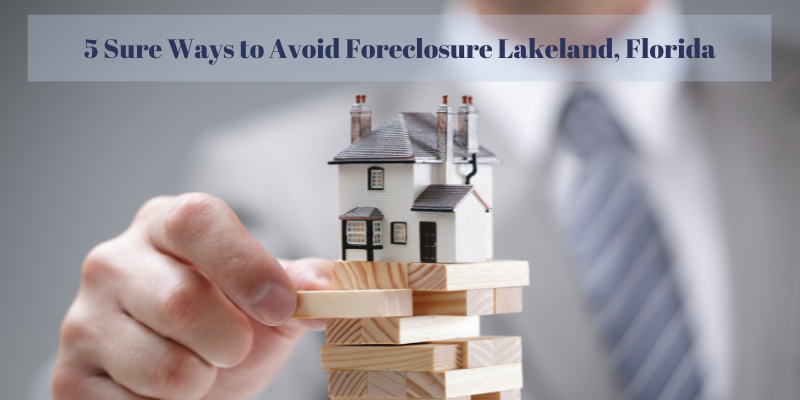No one wants to find themselves facing foreclosure. The effects of foreclosure on your family can be devastating. It is pretty obvious that the biggest fear is losing a house you love. But there are other consequences of foreclosure that can have more lasting emotional and economic effects.
Going through foreclosure is emotionally exhausting and frustrating. It can cause irreparable harm to your family relationships, turn your children’s world upside down and lead to unbearable stress and depression.
Another grave consequence is that a foreclosure will destroy your credit rating. It will make it difficult for you to do the basic things such as renting an apartment, buying a car and in some cases getting a new job. And it will keep you out of the housing market for a minimum of 7 years.
There is a high price to pay when you lose your house to foreclosure!!
Fortunately, you have options. Below, we’ll share 5 foreclosure prevention tips. Not every option may be applicable in your situation. But we are confident that at least one of them will help you.
These are proven, legal foreclosure strategies that will help you avoid the struggle of losing your house to foreclosure and get you back to living your life.
1. Option One – Negotiate with the bank
The truth is that banks are in the lending business. They are not interested in owning real estate. Your bank does not want to go through the trouble and expenses of foreclosing on your home.
But for a bank to help you, you must contact the bank as soon as you know you’ll fall behind on your mortgage payments. Be honest and upfront. By communicating your intention to pay your mortgage, you will be able to postpone the initiation of foreclosure proceedings.
Keep in mind that attorney’s fees which are incurred by the bank to initiate a foreclosure will be charged to your account. These costs are expensive and add up very quickly.
There are several ways a bank can help you.
- Repayment Plan – Under a repayment plan, you spread the amount past due on your current mortgage plan over several months to bring your account current.
- Forbearance Plan – A forbearance plan is initiated after the borrower falls behind on mortgage payments. It is a formal agreement with a longer-term relief, where the bank holds off on the foreclosure process. During the grace period, the borrower’s payments are reduced or eliminated. To avoid foreclosure, you must make up all back mortgage payments at the end of the forbearance period.
- Loan modification program – A loan modification is a long-term alternative to help you manage your mortgage payments. Your bank may offer you several plans, including extending the mortgage term or permanently lowering your interest rate.
2. Option Two – Sell your City house
If you have equity in your house, then one viable option is to sell your home and pay off your mortgage. Assess your financial situation honestly and objectively. If you think you will not be able to keep up with your mortgage payments, then act quickly in putting your house on the market.
The most important thing to keep in mind to ensure a fast sale is to competitively price your house.
3. Option Three – Sell your Lakeland house through a short sale
Luckily, even if your home is underwater (you owe more than what the house is worth) you still may be able to avoid foreclosure. In a short sale, you sell the house for its current value and use the proceeds towards paying down the mortgage. The bank reviews the terms of the sale and if approved will release the mortgage lien and accept your payment, even if it falls short of the amount owed on the debt.
In a short sale, you’ll avoid the negative impact of a foreclosure on your credit report while getting the bank off your back. More importantly, in most cases the bank will write off any unpaid balance, known as the deficiency and not hold you personally liable for repayment.
4. Options Four – Deed in lieu of foreclosure
If all attempts at selling your house in a timely fashion fail and your house is worth close to the amount of the mortgage, you could sign a deed in lieu of foreclosure.
By signing a deed in lieu of foreclosure, you hand over the house to the bank and they agree not to go through the foreclosure proceedings.
As with a short sale, you’ll avoid the negative impact of a foreclosure on your credit report. This can be a more attractive option to a short sale because you can resolve your problems much faster without the stress of finding a buyer and waiting for months to find out if your short sale offer is approved.
Additionally, some lending institutions will offer relocation assistance for homeowners who opt to sign a deed in lieu of foreclosure.

5. Option Five – Bankruptcy
If all other options fail, then you may want to consider filing for bankruptcy. This may seem like a drastic option, but is one sure way to stop a foreclosure until you restructure your finances.
Filing for bankruptcy may be the ideal option to keep your home.
Are you facing foreclosure on your Lakeland home?
If you need help, don’t hesitate to call us. We’ll help you pick the right option for your particular circumstance at no cost or obligation.
If your home is less than perfect or you would prefer not to spend months trying to find a buyer, you may want to consider selling your home to Lakeland Home Buyers.
You can sell your Lakeland area house to us and get a fast closing. You will get a top-dollar cash offer for your house “as is”. You don’t need to worry about a thing. There are no fees or commissions for our service.
Call Lakeland Home Buyers right now at 863-372-8937 to schedule a free, no obligation appointment. We’ll guide you through the entire sales process, to make the sale of your home as smooth and worry-free as possible.
Count on us to help you stop the bank from taking your home and destroying your credit.
Additional resources on avoiding a foreclosure in Lakeland, Florida
- Risks of Using a Short Sale to Avoid Foreclosure via alllaw.com
- Mortgage Assistance via fhfa.gov
- Deed In Lieu Of Foreclosure: What To Know via rocketmortgage.com

